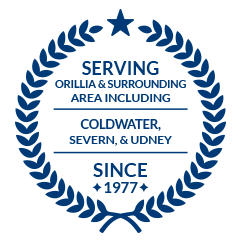What to Do After a Car Accident: Navigating the Claims Process
Car accidents are disorienting and can make you feel overwhelmed and uncertain about what to do next. However, doing the wrong things can affect your insurance claim or even have serious legal consequences, depending on the severity of the accident.
Therefore, it’s crucial to stay calm and follow a structured approach to navigate the claims process efficiently. Here we will help you to understand the process to ensure you successfully make your claim. Read on to find out more.
8 Steps to Follow After a Car Accident
If you’ve just had an accident or are simply wondering what to do, here are the steps to follow after a car accident to ensure your insurance claim goes smoothly.
1. Check for the Safety Of Everyone Involved
Immediately after a car accident, your first concern should be your safety and that of every other person involved in the accident. Check for injuries. This will help you know whether to call for an ambulance or use first aid treatment.
Then, if possible, move the car from the road to a safe location, such as the sidewalk or the shoulder of the road. This can prevent further accidents.
2. Contact a Police Officer
Insurers are more likely to approve your claim if you have a police report because it proves the validity of your account of the accident. So, after ensuring the safety of everyone involved in the car, the next thing is to contact the authorities.
Note that the police might not respond if the accident is just a minor collision. However, regardless of the accident’s severity, file a police report, as it can provide crucial documentation for your insurance claim.
Cooperate fully with the police and provide accurate information about the accident. If the police arrive at the scene, take note of the officer’s name, badge number, and contact information. Also, request for a copy of the accident report from the officer. If the police did not come, request a report from the law enforcement office.
3. Gather Information
Get relevant personal details from all parties involved in the accident, such as names, contact information, driver’s license number, and insurance details. Also, collect all relevant vehicle information, such as make, model, year, color, vehicle identification number, and license plate number. Finally, collect contact information from any witnesses present at the scene.
Properly document the scene by taking pictures and videos of the entire accident scene, including vehicle damage, road conditions, and traffic signals. Record the time and date of the accident and take note of the directions each vehicle was heading to.
4. Contact the Insurance Company
Insurance policies are designed to protect you financially after an accident. So, if you’re involved in an accident, you should notify your insurance company about the crash as soon as possible. Most insurance companies have a 24/7 claims hotline for this purpose.
Be truthful and provide accurate information about the incident. This will save you from being liable for damages caused by the accident. We cannot overemphasize the importance of “being truthful and providing accurate information” because distortion of facts (even minutely) is the most common reason why auto insurance claims are denied.
You should file an accident report as soon as possible. Most auto insurance police do not provide a strict deadline or window for filing claims. However, if you didn’t file a report to your insurance broker, agent, or insurance company as quickly as possible following an accident, your claim may be denied. There is no need for delay. Get the necessary documents for the claim and file your report.
You will need to provide the following when making your report:
- Accident details – driver’s name and license number
- Date, time, and location of the accident
- Your policy number
- Make, model, year, registration number, license plate number of the vehicle
- Extent of injuries
- Extent of damages to the vehicle
- Number of passengers involved
- The name and badge number of the investigating police officer
- Names and driver’s license numbers of all drivers involved
- Your description of the accident
- Names of insurance companies and auto insurance policies of all drivers involved
This list of data needed to file your insurance claims emphasizes the need to be thorough when gathering information following a car accident.
5. Seek Medical Attention
Note that some injuries (like internal trauma or whiplash) may not be immediately apparent but can have long-term consequences. So, it’s important to go for a medical evaluation after a car accident, even if your injuries seem minor.
Medical records will also be crucial when filing a personal injury claim. It’s also important to check whether or not your policy has personal injury protection (PIP) included as this can provide financial support should you have medical expenses to pay.
6. Document Your Expenses
Document all expenses related to the accident, such as medical bills, vehicle repairs, rental car costs, and any other out-of-pocket expenses. This documentation will be helpful when negotiating a settlement with insurance companies.
7. Be Cautious with Insurance Adjusters
Insurance companies lose money when they pay for damages, so it’s important for them to double check all of the facts surrounding the accident. Thus, be mindful of what you say to them, as your statements can be used against you.
You may ask the adjuster to justify their offer if you perceive it as low. While you can represent yourself in the negotiations, you may be better served getting a lawyer.
8. Consider Legal Assistance
It is wise to get legal assistance if the accident results in significant injuries, you’re making a huge claim, or liability is unclear. A skilled lawyer can help protect your rights, negotiate a fair settlement with the insurance companies, and guide you through the whole process.
Final Thoughts
After a car accident, navigating the claims process can be exhausting. But with a clear understanding of the necessary steps, you can work towards a satisfactory resolution.
Following the steps above will help protect your interest and bring you success as you navigate the complexities of a car accident claim. If you need further advice or are in need of a trusted insurance broker, then contact Ron Johnston Insurance today to see how we can help.
- Tips for Securing Affordable Cottage Insurance Rates in Ontario
- Cottage Insurance Essentials: Coverage Options Explained
- Understanding Liability Limits in Commercial General Liability Insurance
- How Do I Calculate Business Liability Insurance Needs?
- Is Product Liability Insurance Included in General Liability?
- April 2024
- March 2024
- February 2024
- January 2024
- December 2023
- November 2023
- October 2023
- September 2023
- August 2023
- July 2023
- June 2023
- May 2023
- April 2023
- March 2023
- February 2023
- January 2023
- November 2022
- October 2022
- September 2022
- August 2022
- July 2022
- June 2022
- May 2022
- November 2021
- January 2018
- December 2017
- November 2017
- October 2017
- September 2017
- August 2017
- July 2017
- May 2017
- April 2017




